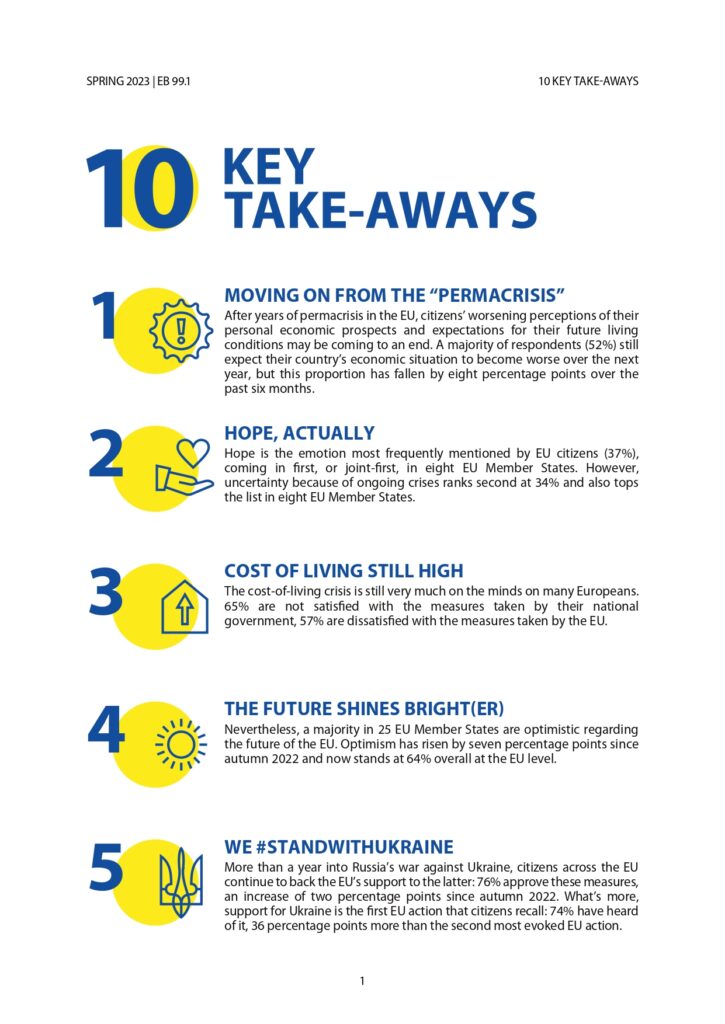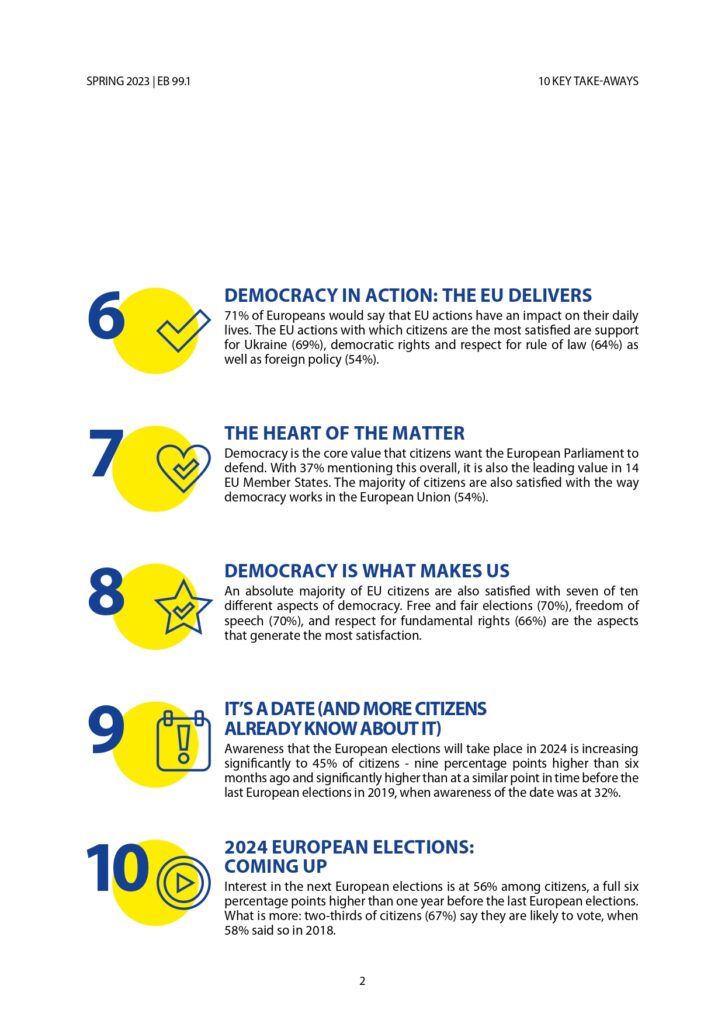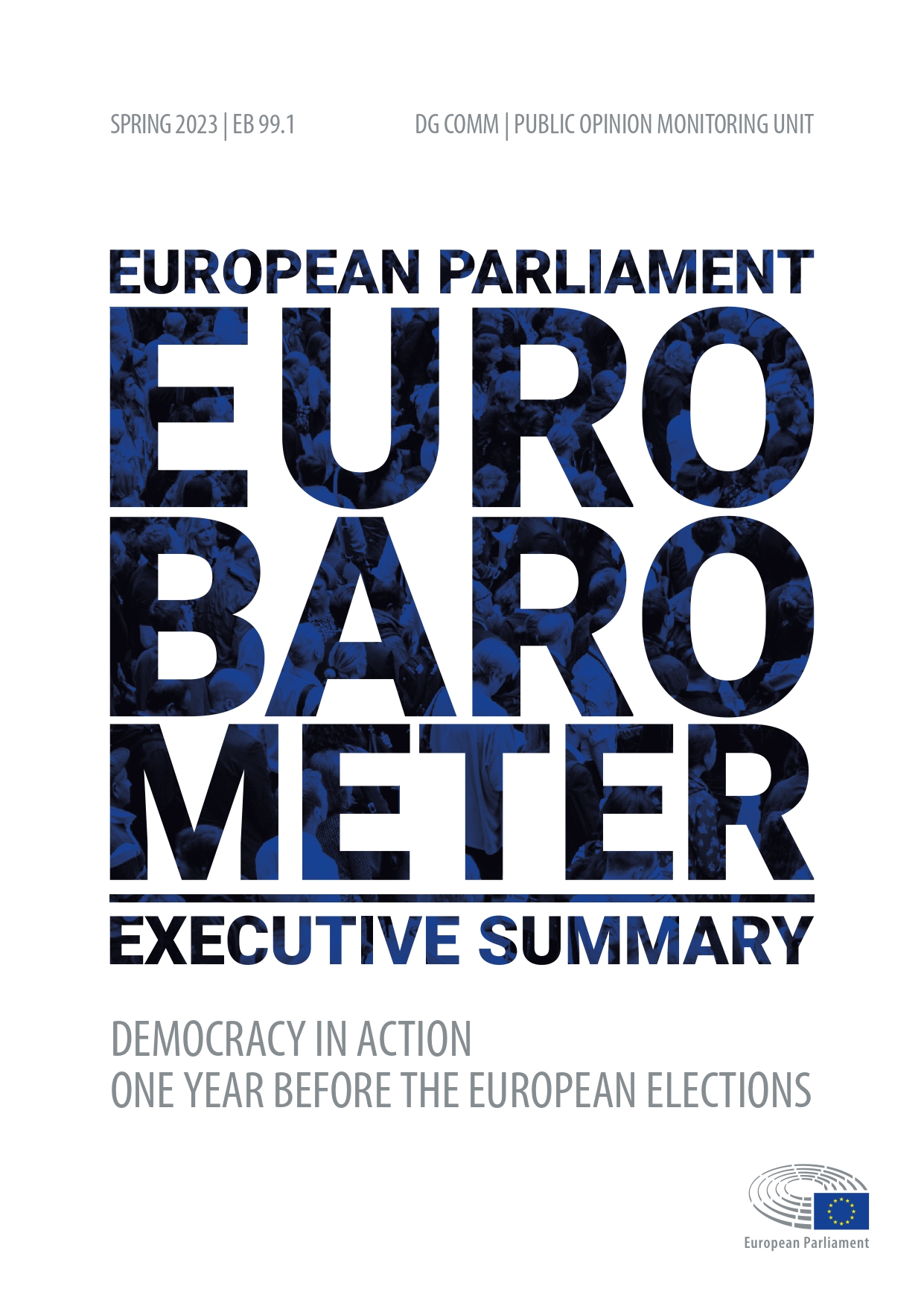The importance of voting in the European elections has remained broadly stable in the European Parliament’s Spring 2023 Eurobarometer survey compared to October-November 2022, with almost half of citizens (48%) placing high importance on voting. However, there are significant differences between countries of the 4 macro-regions.
In 17 member states, the significance of European elections is recognised by a majority, with the highest proportions saying voting is highly important to them personally observed in Denmark and Sweden (both 70%). In nine countries, the majority places medium importance on voting in these elections, most notably in Romania, Italy (both 46%) and Croatia (45%). Finally, in six member states, at least one in five place low importance on voting, with respondents in the Czech Republic (30%), Bulgaria (23%), Cyprus and Slovakia (both 22%) being the most likely to give this answer.
In 11 countries, respondents are more likely than they were in October-November 2022 to place high personal importance on voting in the EP elections. Lithuania (53%, +15 pp) stands out for a particularly large positive evolution, followed by Slovakia (34%, +8 pp) and Finland (57%, +7 pp). This proportion has decreased only in Hungary (46%, -6 pp), Greece (49%, -4 pp), and the Czech Republic (25%, -3 pp).
Respondents are more likely to attach high importance to voting in national elections than they are to European elections in all countries. Nevertheless, the size of this gap varies considerably across member states. The largest one can be found in the Czech Republic (national 63%, EU 25%), followed by Estonia (national 69%, EU 35%) and Slovenia (national 70%, EU 38%). The lowest difference can be observed in Italy (national 54%, EU 43%) and Romania (national 57%, EU 45%).


